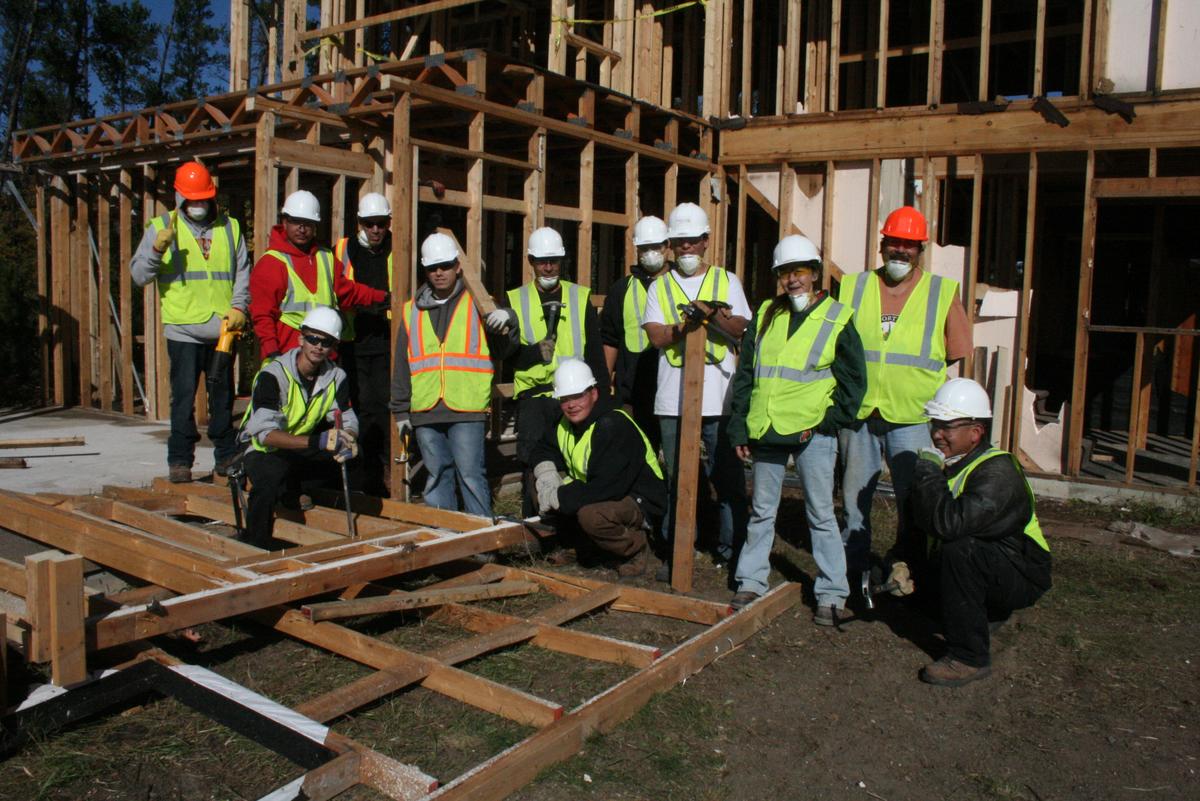Seven years ago, Duane Fisher knew it was time to shake off city life for a quieter life in the country. So he moved from Minneapolis to Bemidji as a member of the Leech Lake Ojibwe band with some basic construction skills and a good work ethic.
Today he’s one of 12 on a crew of men who are doing the opposite of construction – deconstruction – and recycling the wood and fixtures in old structures. In October, they diligently wrenched two-by-fours apart and stacked pressed board into piles from an old motel on Highway 2 in Cass Lake. The usable materials will be made into new products or sold as construction material.
Fisher is part of a social enterprise called Miigwech Aki, or “Thank you, Earth” led by Director Christopher Bedeau. The goal is to provide jobs and training in northern Minnesota, partnering with tribes and the local communities, while honoring Mother Earth by diverting resources from landfills.
“This program is an inspiration for me,” said Fisher. “What I saw in the cities, I know a lot of construction companies are not recycling their materials. Maybe someday I can start a business that goes to construction sites and recycles their waste.”
Miigwech Aki started in 2012 as a pilot partnership with funding from the Department of Employment and Economic Development (DEED) introducing Bedeau at the Northwest Indian Community Development Center to Better Futures Minnesota. Could the Minneapolis-based deconstruction model of creating jobs and teaching skills to men released from prison work in northern Minnesota?
“This is a great collaboration for our Tribal Employment Rights Office,” said Brian Lussier, TERO Compliance Officer. “For TERO, our biggest challenge is always jobs. This is a huge opportunity for these guys.”
In addition to job skills and a solid wage, the crew is offered expensive OSHA-30 certification training which makes them even more employable.
NRRI had been working with Better Futures Minnesota since 2014, helping them find markets with the most value for the resources pulled from old structures. And it was NRRI involvement in the DEED grant that connected Better Futures and Miigwech Aki. Then in 2016, the three organizations received joint funding from the Environment and Natural Resources Trust Fund to move the project out of the pilot stage adding the additional step of documenting the reduction in greenhouse gas emissions.
“We know wood species and wood grades,” said NRRI Scientist Victor Krause. “So, we’re helping them assess the value, quality and quantity of materials harvested. The environmental impact of this organization is amazing, but for me, personally, the impact on people’s lives is so meaningful.”
Krause and his wood products team also found a simple bench design that could be made out of the recycled wood, then sold to state parks. This adds value to the materials locally, and adds the construction element to deconstruction skills.
“And the whole story can be told with the benches,” said Bedeau. “From their recycled wood, to the jobs created and skills gained by the crew, then diversion from the landfill and reduced carbon emissions. We’re reinvesting in the community.”
Bedeau’s goal for Miigwech Aki is to move people through the program and on their way to careers with large construction firms. Kraus-Anderson is one of the conduits for crew members after they’ve learned basic skills, job site safety and the rewards of a working wage.
“I just need to keep the work flowing,” said Bedeau. “We need to build our capacity and reputation for quality work. And we’re doing that step-by-step. If we can keep them working, keep money in their pocket so they can provide for their families, it makes them feel good.”
